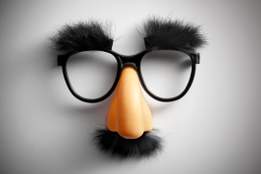
Boffo
Who's more famous — Queen Elizabeth II or photographer Annie Leibovitz? It's a toss-up....But pair America's queen of celebrity portrait photography and the British queen — plus, her husband of 68 years, Prince Philip — and you have a boffo combo of fame and success.
—Maria Puente, USA Today, 10 June 2016
Boffo made its print debut in the early 1900s as a noun to refer to something great: a solid joke or a good punch line. Within a few years, boffo began to be applied adjectivally to things that, like a good joke, were a big hit: performances, an all-star cast, and then movies. The adjective appears to have been popularized by Variety magazine: other early sources point to Variety as the originator of the word, and though our evidence says otherwise, it did show up in Variety with regularity.
Etymologists disagree on boffo's origins. Some time it to a similar word, boffola, which also refers to a punchline or joke; others tie it to the earlier boff, which can be used of a joke or a hearty laugh, and which itself is likely an adaptation of "box office."
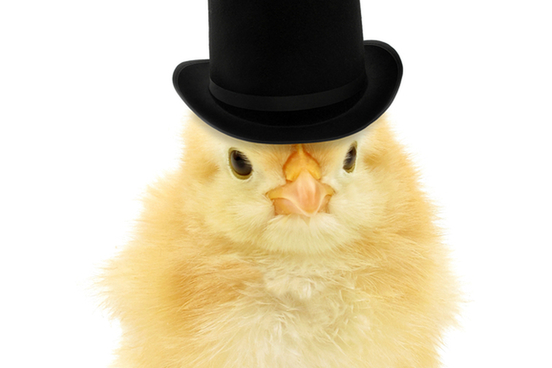
Swell
I'd had a couple of dates with other perfectly swell guys, but they were stilted and tiring.
— Cosmopolitan, April 2014
Swell is just dandy: a word for "great" that has a bit of an old-fashioned ring to it. It's not as excellent as excellent, but not as bland as okay. It's swell.
You're likely more familiar with the verb swell (which means "to expand in size"), the grandparent of the "great" swell, and a word which goes back to the 8th century CE. How are the two connected?
There's an intermediary noun swell that has a variety of meanings, including one referring to a pompous person. That particular noun meaning likely came from the idea of "puffing" yourself up, and is used perfectly by Anthony Trollope in The Small House at Allington: "'I'll tell you what he is, Bell; Mr Crosbie is a swell.' And Lilian Dale was right; Mr Crosbie was a swell." Pompous people often are trying to impress others, and the noun gained another, gentler meaning that refers to a person who is fashionable.
This meaning gave rise to the adjective swell: it first referred to something stylish or fashionable. In time, that meaning broadened to mean "great" or "excellent":
"Give me li'l old New York," said the man from up-state, unpatriotically. "It's good enough for me. I been to some swell shows since I got to town. You seen this year's 'Follies'?"
— P.G. Wodehouse, The Adventures of Sally, 1921
Use of the adjective swell peaked in the earlier part of the 20th century, though we still have ample evidence of its use.
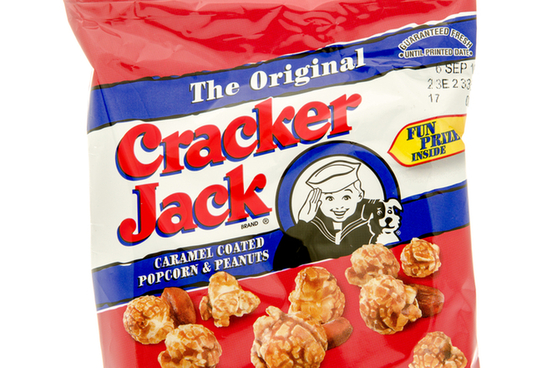
Crackerjack
Around now I should mention that the book works great anyway. That's the power of brave confession combined with crackerjack research.
— Darin Strauss, The New York Times Book Review, 13 Feb. 2011
If you're an American of a certain age, you're likely more familiar with another type of crackerjack: the popcorn-and-peanuts treat immortalized in the song "Take Me Out To The Ballgame." Surely the adjectival crackerjack comes from the trademark Cracker Jack?
It's the other way 'round. Crackerjack first showed up in English print in the late 1800s as a noun that referred to someone or something of high quality. Oddly enough, Cracker Jack had been used as a nickname through the mid-1800s for at least one robber, some unnamed gamblers, and a handful of other local characters who ended up shot or jailed. But in the early 1880s, we see the word applied to a "steal":
Stylish Business and Dress Suits for Men at $10, $12, $15, $16, and $18 at MABLEY'S. A regular "Cracker Jack" at $18, worth $25.
— advertisement, Cincinnati Inquirer, 28 Nov. 1882
From that point onward, the noun crackerjack was used of excellent things or people of outstanding ability, and it wasn't too long before the adjective showed up in print to refer to the same thing. The trademarked confection didn't get its name until 1896.
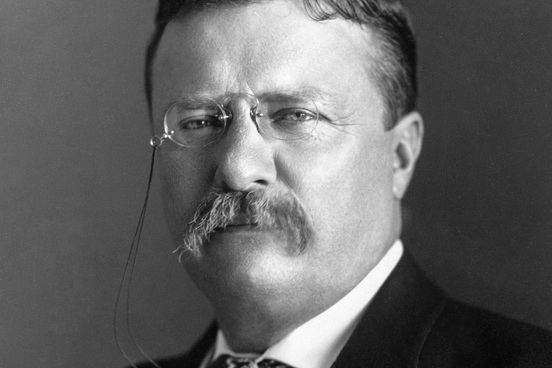
Bully
[Alvin] Chriss and Cassell are working with NBC to organize a series of six indoor meets, and the executive board's not rumbling. "If Alvin and the circuit succeed," says Julia Emmons, chair of women's long-distance running, "then bully for everyone."
— Dick Patrick, Runner's World, September 1994
If you're a fan of the TV show Parks & Recreation, you are probably familiar with bully: it's one of Ron Swanson's favorite congratulatory lines ("Well, bully for you."). Swanson sometimes uses the word in earnest, and sometimes sarcastically, which is in keeping with how the word is used now. But how did a word for someone who is habitually cruel come to mean "great"?
The original bully was a sweetheart: the English word bully is likely from a medieval Dutch word that means "lover." The noun was generally applied to gallant men, and in short order, the noun bully gave rise to the adjective bully, which meant "jovial, gallant, or dashing."
The noun and the adjective began to drift apart semantically: the noun took on a more sinister air, referring first to a man of exceptional physical prowess, then to a ruffian, and then finally to a cruel harasser. The adjective, however, broadened its meaning in the other direction, and came to be used of things that were of the very best quality: bully cars, bully ideas, and so on.
This use of the adjective bully is not terribly common these days, though it does still exist in the phrase "bully for you."
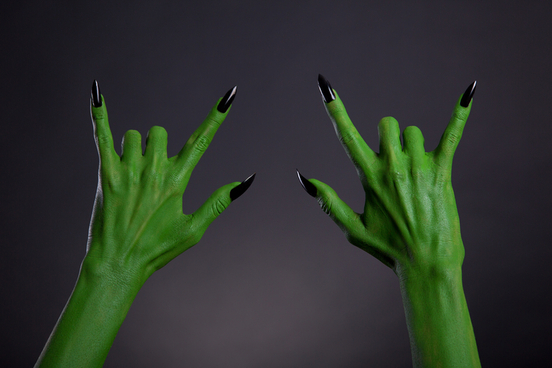
Wicked
His battle-tested lineup includes senior guard Jason Klein, a wicked, albeit streaky, outside shooter...
— Grant Wahl, Sports Illustrated, 28 Nov. 1998
Wicked is an informal way of describing excellence, but one that surprises plenty of folks. Doesn't wicked actually mean "unspeakably evil"?
Yes. It also means "excellent." These two meanings don't cancel each other out.
Just as with bully, wicked is a prime example of how a word's meaning can develop so that it seems to be its own opposite. Wicked first came into English in the 1200s to refer to someone who was morally bad or corrupt. As people used it more, its meaning broadened to refer to things that were reprehensible ("a wicked miscarriage of justice"), animals who were mean-spirited or hard to control ("a wicked horse"), and things that were thought to be dangerous, noxious, or poisonous ("a wicked odor" or "wicked weather" or "wicked roads"). And as the meaning continued to broaden, it also softened: its next chronological meaning was for someone who was mischievous ("a wicked little imp").
That marks the point at which wicked ceased to be evil. The next meaning it gained was "going beyond reasonable limits" ("they charged wicked prices" or "they experienced a wicked loss"). But this connotation of excessiveness eventually led to the idea of exceptionalness, not just excessiveness: "he's a wicked card player," or "she has a wicked fastball." Though this meaning is still informal, it's not uncommon.
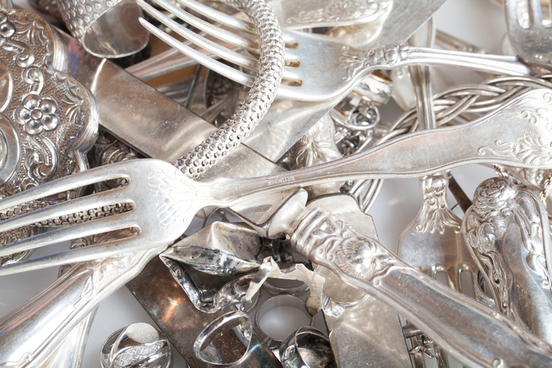
Sterling
New rules put in place in 1968 led by almost geometric progression to the nomination of George McGovern in 1972, and despite McGovern's sterling pro-labor credentials, the AFL-CIO refused to endorse him.
— Kevin Drum, Mother Jones, March/April 2011
Lots of "great" words have one thing in common: they're tied to things of value. Think of your sports team's solid-gold play; the gold-medal speech your favorite candidate gave; the blind date who is a treasure. Sterling is one such word.
The original sterling was an English silver penny used in the Middle Ages. You may be familiar with this sense in the compound "pound sterling," another name for the British pound and so named because the monetary unit was literally one pound-weight of sterling pennies. By the 1400s, the word sterling referred to silver that was pure enough to be used for pennies:
All suche fyne silver...shall be...made soo fyne that it may ... be as good as sterlynge and rather better than worse.
— Acts of Parliament, 1488–1489
Sterling, then, became a standard to which other silvers were compared. Within a few centuries, the word also came to refer to anything of superior quality or excellence—something that was so good, it set the standard for all others in its class.
Today, sterling is used to refer to something that is not only excellent, but which also withstands any test put to it. In this sense, it most commonly appears in the phrase "sterling reputation" to refer someone whose reputation is solid gold.
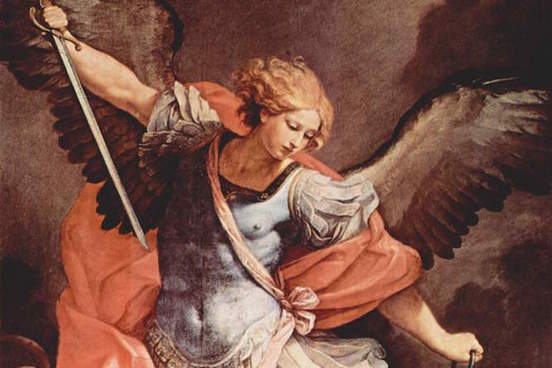
Righteous
Barlow's songs are more informed by folk and pop, even when, as on "2 Years 2 Days," they're filtered through righteous distortion.
— Trent Hill, Rolling Stone, 2 Sept. 1993
Righteous is an old word living a double life: a marker of moral goodness, and undercover slang for "excellent."
The link between the historical righteous, which refers to acting according to divine or moral law, and the slang righteous that means "excellent" is clear: the morally right and virtuous are often considered to be "excellent." But the path it took to gain a slang meaning is fascinating.
According to our evidence, righteous did not start out as a surfer term of the 1980s, as many people assume. It gained its slang meaning sometime in the early part of the 20th century from the world of jazz hepcats. The word righteous had come to mean "genuine" or "honest" as early as the 1500s, and jazz musicians in the 1930s, building on the earlier "genuine" meaning and the connotation of moral uprightness, took "righteous" to mean "excellent" or "cool." As the first generation of hipsters came into their own, they borrowed plenty of slang from jazzmen, including righteous. Righteous entered the hepcat lexicon.
According to the swingin' world of the 1940s hepcat, to be righteous was not just to be cool, but to be smooth, genuine, the real hipster deal. The slang meaning cooled off a bit during the 1950s, briefly popped its head up during the hippie days of the 1960s, and then went dormant again until Southern California surfers revived it in the 1980s and 1990s and used it adjectivally to refer to anything excellent ("a righteous wave"). They also used it interjectionally to strongly agree with a speaker ("Righteous, dude!"). Today, both the "genuine" and "excellent" uses of righteous show up in informal settings—and still very often in reference to music.
